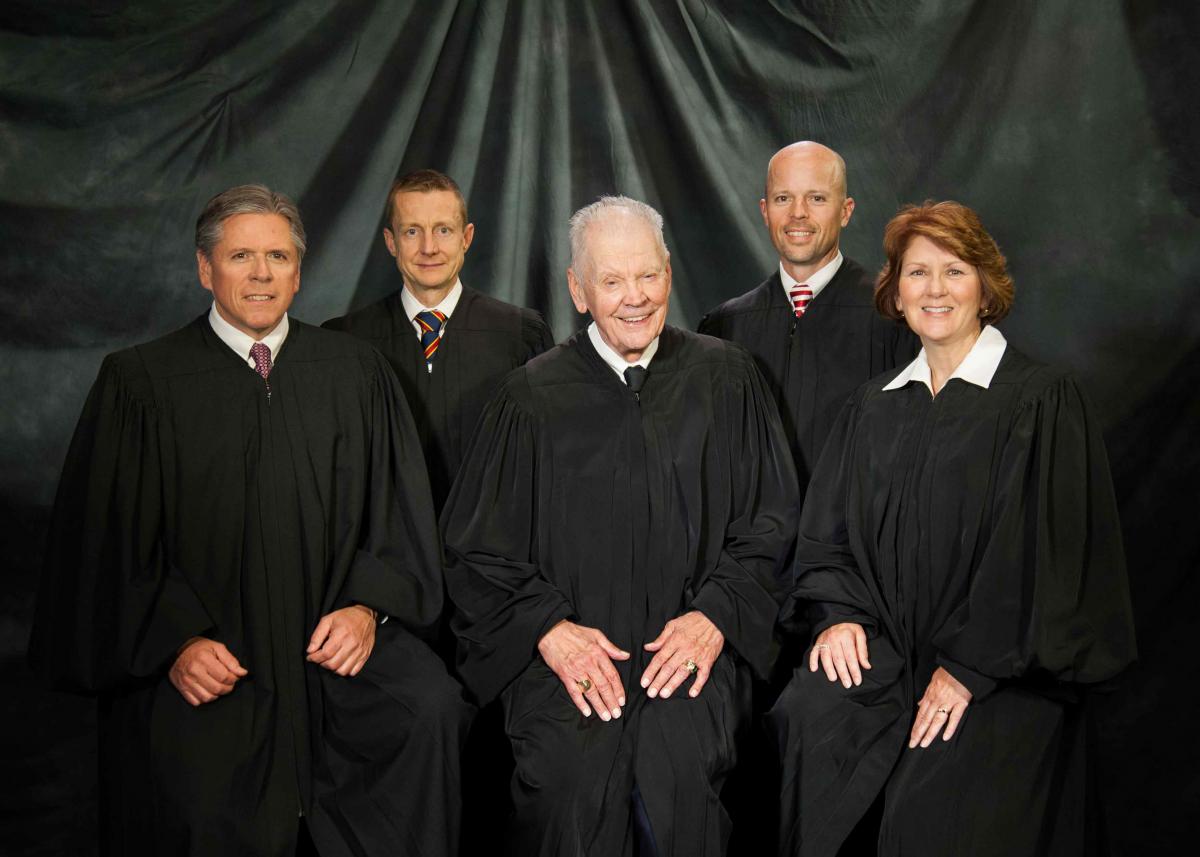The judicial branch of North Dakota government is composed of the state court system. In North Dakota, four types of courts make up the judicial system. These are the State Supreme Court, Court of Appeals, District Courts, and Municipal Courts. The judges making up the judicial branch of North Dakota government are elected by the people.
The highest court in the state is the North Dakota Supreme Court.Highest court in the state The State Supreme Court is composed of five justices,Judge on the Supreme Court or judges. To qualify for this position, a person must be a licensed attorney and must be a citizen of both the United States and of North Dakota. A State Supreme Court justice is elected for a 10-year term, but he or she may be re-elected any number of times.
The justices of the Supreme Court elect one of their members to serve as Chief Justice.Presides over the Supreme Court The duties of Chief Justice include presiding over the Supreme Court and attending official state functions.
One of the responsibilities of the Supreme Court is to hear appeals. An appealCourt case that is brought from a lower court to a higher court to be heard again is a court case that is brought from a lower court to a higher court to be heard again in hopes of winning the case. Another responsibility of the Supreme Court is to make sure all other courts in the state, except federal and tribal courts, are carrying out their duties properly.

Figure 25. North Dakota’s Supreme Court has five justices. The justices are elected to 10-year terms by the people. (Left to right) Justice Daniel J. Crothers, Justice Jon J. Jensen, Chief Justice Gerald VandeWalle, Justice Jerod Tufte, and Justice Lisa Fair McEvers. (ND Supreme Court)
Three judges, chosen by the Supreme Court, make up the Court of Appeals. The purpose of this court is to assist the Supreme Court with certain cases that the Supreme Court assigns to it.
North Dakota is divided into seven judicial districts, with each district having one or more District Courts. Every county in the state is served by one of the District Courts. Over 40 judges, who are elected for six-year terms, serve as District Court judges. District Courts handle two types of cases—criminal cases and civil cases.
A criminal caseInvolves someone being accused of doing something illegal involves someone being accused of doing something illegal.Against the law If the court finds a person guilty of a crime, the person may have to pay a fine or go to jail.
A civil caseInvolves disputes concerning people’s rights involves disputes concerning people’s rights. Examples include suing someone because of injury or property damage, divorce cases, custody cases, and contract disputes.
Municipal CourtsDeal with violations of city ordinances deal with violations of municipal, or city, ordinances (laws). Most of the cases in Municipal Courts concern traffic violations, but criminal cases may also be brought before Municipal Courts.

Figure 26. Supreme Court Justice McEvers visits with a class of students at the Eight Mile High Public School in Trenton. (ND Supreme Court)


